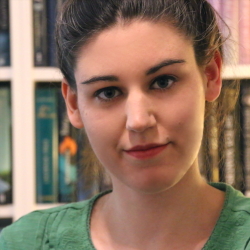
Ever since my first visit to Ireland in 2008, I’m obsessively in love with the country having returned multiple times. I just love everything about the Emerald Isle. A part of this fascination concerns the Irish language, Gaeilge. It is the first official language and therefore all street signs are written in Gaeilge (most of them have English ‘subtitles’) and many people have Gaelach names – and that’s a huge problem for a foreigner. Gaeilge just happens to be a language that is completely mental! Don’t get me wrong, I love it – how could I not, since my own name is Gaelach. But I just really don’t know what they were thinking when they decided on the spelling. It just makes no sense whatsoever. Don’t believe me?
Well, how would you pronounce the Gaelach name of Dublin, Baile Átha Cliath? Or Galway, Gaillimh? How about Dún Laoghaire? Or the greeting “Dia dhaoibh” (pl.)? Or the most important sentence for us readingrats: “I love reading” – “Is breá liom a bheith ag léamh”? Probably not how they are supposed to be pronounced and unfortunately, I can’t transcribe them phonetically since I don’t know the Irish phonetics and (most of) you don’t know them either. Apologies to my English readers, but I’m going to ‘transcribe’ them into German spelling only because it’s late – and keep in mind that I learned the Galway version of Connacht Irish: Balla Klia; Gallje; Dan Lierie (rhotic r), D(s)ia rief; Is brah lom weg leef.
And yet, Irish is absolutely gorgeous and so. much. fun. I mean, you can make fun mnemonics, for example, ASoIaF Shae is exaclty pronounced like (a) sé – and now guess what number that is (again, German is helpful in this case). Or you can translate popular songs into Gaeilge and have music that is fun to listen to, helps practice your pronuncation, puts you into good humour – and makes you survive writing your bachelor thesis. That’s what Coláiste Lurgan is doing as part of their summer school project to add zest to Gaeilge for teens. They are absolutely fantastic – and the best part: you can download all their songs for FREE here – and check out their other videos here.
So, have you ever wondered how Macklemore, Avicii, Imagine Dragons, FUN, or Bastille sound in Gaeilge? Well, here you go (lyrics are in the info boxes on youtube, in case you want to see how crazy the spelling vs. pronunciation really is):






Dia duit!
Haha ich hab auch so eine CD auf der irische Künstler ihre Lieder auf irisch gesungen haben, u.a. auch mit den beiden aus “Once” (also The Swell Season), Galway Girl, blablabla.
Witzigerweise habe ich in Irland nicht die Galway-Ausprache gelernt sondern die aus Donegal, sodass ich die Sachen ein wenig anders ausgesprochen hätte. Die Version soll wohl noch ein bisschen näher am Schottischen dran sein.
Hach, jetzt würde ich das zu gerne wieder haben und weiterlernen.
Slán 😀
Dia is Muire dhuit!
Auch nicht schlecht. Irisch klingt einfach so schön.
Mir ist schon auf der Buchmesse aufgefallen, dass du ne andere Aussprache hast. Ich hab auch erst nochmal nachsehen, was genau das bei mir war und auch wenn beides Connacht ist, wurde da eben explizit erwähnt, dass Galway und Donegal nochmal unterschiedliche Dialekte sind.
Ich auch, total! Ich mag die Sprache sooo gerne und hab aber die paar Brocken, die ich gelernt habe, (fast) alle schon wieder vergessen. Aber vielleicht versuche ich jetzt mal den ein oder anderen Songtext zu übersetzen oder so 😉 !
Slán go fóill
Ich habe echt noch nie mehr als ein “Wort” auf irisch gehört, das klingt ja total verrückt XD Ich glaube damit käme ich überhaupt nicht klar, dass die Wörter nicht mal annähernd so klingen, wie man sie schreibt. Bin ja schon total stolz, dass ich Siobhan und Saoirse aussprechen kann, haha.
Es ist zugegebenermaßen ziemlich gewöhnungsbedürftig aber doch auch verdammt lustig. Kurze Wörter gehen noch einigermaßen und dass s vor e und i zum sch wird und e am Ende meistens wie a ausgesprochen wird, kann ich mir gerade noch merken. Aber bei den ganzen bescheuerten Vokalkombinationen wusste ich nie, was ich jetzt aussprechen soll. Irgendwann bin einfach dazu übergegangen, den letzten auszusprechen und die anderen zu ignorieren (klappt bei aoi ja wunderbar).